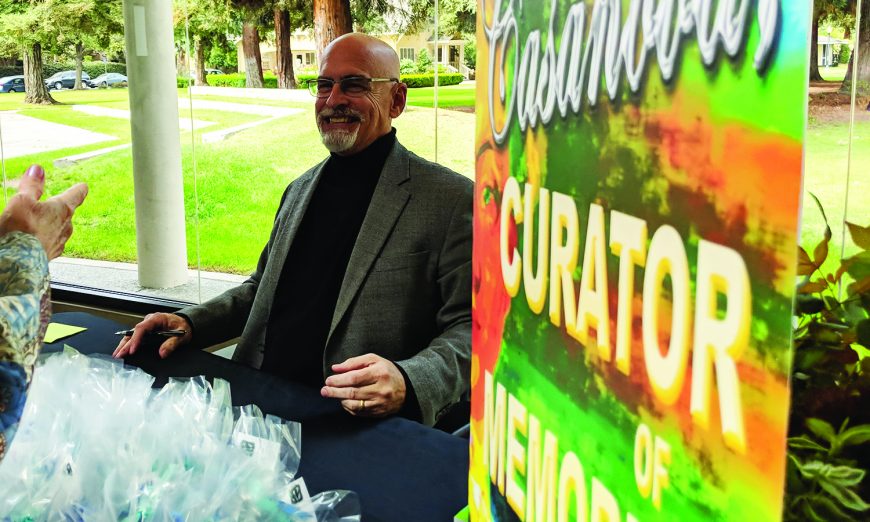Santa Clarans have long been privileged to hear the Triton Museum of Art’s Deputy Director Preston Metcalf lecture on art history. His vast knowledge of different mediums, theories, meanings and historical periods has entranced both students in the classroom and those who appreciate what it takes to make great art. Now, after nearly a decade, Metcalf has released his first novel, “Casanova, Curator of Memories.”
Metcalf has often referred to the notion of “I and the other are one,” or the idea that all of humanity is inevitably connected in his lectures. For his debut novel, Metcalf chose to delve deeper into that concept by creating a version of storied womanizer Giacomo Casanova who could look upon a great work of art and interpret it personally.
“My Casanova is not really the historical Casanova, although there are many references to his life,” said Metcalf. “My Casanova is a trope and it’s a trope for the lover — the lover of people [and] the lover of art.”
At a book launch, reading and signing at the Triton in September, Metcalf and his publisher, Cricket Rogers Freeman, spoke about the book, its significance and how the whole project came to fruition.
Freeman said she was initially drawn to Metcalf’s pitch because she was once an art student. The novel, she said, tapped into her personal love of the subject, although she was quickly hooked on Metcalf’s story after randomly selecting an excerpt to read.
“I did what I normally do with any novel and I just scrolled through as fast as I could to find something,” she said. “And what’s the first thing I read?
“‘Should I meet her blackblood eyes, the more frightening will her Gorgoneum be.
A scream, a throaty hissing scream, as if spitting Medusa’s curse, issues from her Libyan craw.
It is an old argument, well rehearsed and well worn.’”
“And then I looked here,” she continued, motioning to another page in the book, “and it’s Medusa. How do you say no to that?”
Images of masterpieces — and even pieces by former-Triton Executive Director George Rivera and artist Cuong Nguyen — accompany each of the stories Metcalf tells. Through the 42 tales, Metcalf’s dying Casanova shares the memories of romance, loss, bravery, sacrifice and love that made up his scandalous life. The twist, however, is that each of Casanova’s recollections is tied directly to the great work of art that precedes it.
“As [Casanova] recounts his stories to his grandnephew, what the reader knows but the grandnephew doesn’t is that each story is preceded by a great work of art and each woman portrayed in that work of art is the subject of his memory,” said Metcalf, adding that the novel isn’t about the subject, but the reader and the reader’s life experiences — an idea Metcalf often refers to when speaking on great works of art.
And although the process was long — almost 10 years writing and doubling the size of “Casanova, Curator of Memories”— it proved to be worthwhile, as when it came to editing, Freeman found nothing worth changing.
“I was very hands-on in his book,” said Freeman. “I loved every minute of the work. I did as much as I could but I have to tell you — and this is a dream as an editor — I didn’t change a thing. I didn’t change a spelling; I didn’t change a period; I didn’t change a comma because I didn’t have to. He had done his job and done it expertly.”
“Casanova, Curator of Memories” is available on Amazon, amazon.com/Casanova-Curator-Memories-fable-time/dp/1942018142.






